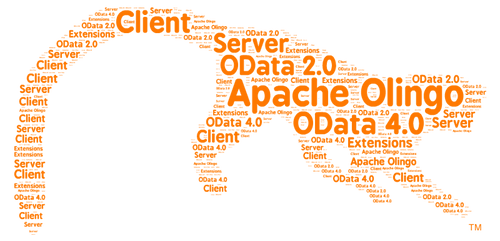Handling BLOB and CLOB Data Types¶
JPA entities can have properties that are of type java.sql.Blob or java.sql.Clob. Internally, JPA entities can instantiate a JPA provider (Eclipse Link or Hibernate or ...) specific implementation
of the above two interfaces and bind them to the properties. To enable write on such properties using OData JPA Processor Library, an additional access modifier is required to be added to the JPA
entities. Following is the proposal on how OData JPA Processor Library handles java.sql.Blob and java.sql.Clob during metadata generation and runtime processing.
EDM Generation¶
Based on the JPA entity property type, the pseudocode for generating the EDM is as below.
For java.sql.Blob:
- Check if JPA entity property is of type byte[] or of type java.sql.Blob and annotated with @Lob annotation.
- If Step 1 is true, then generate an EDM property with type as Edm.Binary
For java.sql.Clob:
- Check if JPA entity property is of type
java.sql.Cloband annotated with @Lob annotation. - If Step 1 is true, then generate an EDM property with type as
Edm.String(with no max length unless a max length is specified).
Runtime Processing¶
Prerequisites:
- It is mandatory to implement the callback interface
org.apache.olingo.odata2.jpa.processor.api.OnJPAWriteContent. - The implemented interface needs to be registered with the service via the method
setOnJPAWriteContentpart ofODataJPAServiceFactory.
Following is the pseudocode for handling the java.sql.Blob and java.sql.Clob during runtime.
/* Callback Implementation */
public class OnDBWriteContent implements OnJPAWriteContent {
@Override
public Blob getJPABlob(byte[] binaryData) throws ODataJPARuntimeException {
try {
return new JDBCBlob(binaryData);
} catch (SerialException e) {
ODataJPARuntimeException.throwException(ODataJPARuntimeException.INNER_EXCEPTION, e);
} catch (SQLException e) {
ODataJPARuntimeException.throwException(ODataJPARuntimeException.INNER_EXCEPTION, e);
}
return null;
}
@Override
public Clob getJPAClob(char[] characterData) throws ODataJPARuntimeException {
try {
return new JDBCClob(new String(characterData));
} catch (SQLException e) {
ODataJPARuntimeException.throwException(ODataJPARuntimeException.INNER_EXCEPTION, e);
}
return null;
}
}
/* Call Back registration in Service Factory */
public class JPAReferenceServiceFactory extends ODataJPAServiceFactory {
public static final OnJPAWriteContent onDBWriteContent = new OnDBWriteContent();
@Override
public ODataJPAContext initializeODataJPAContext()
throws ODataJPARuntimeException {
....
........
..............
setOnWriteJPAContent(onDBWriteContent); //Register Call Back
return oDataJPAContext;
}
}
OData JPA Processor Library internally does the following:
- Checks if the JPA entity property is of type
java.sql.Bloborjava.sql.Clob. - If Step 1 is true, then it invokes the registered callback method
getJPABloborgetJPAClobrespectively. - If callback method is not defined, it throws an exception.
Note: Step 3 is needed because the OData JPA Processor Library is not bound to any specific implementation of BLOB or CLOB interface.
Copyright © 2013-2023, The Apache Software Foundation
Apache Olingo, Olingo, Apache, the Apache feather, and
the Apache Olingo project logo are trademarks of the Apache Software
Foundation.

